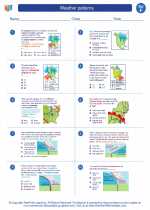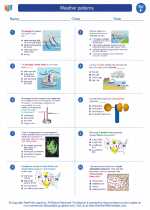Biopower
Biopower refers to the use of biological resources or living organisms to generate energy, produce goods, or perform various other functions. This concept encompasses a wide range of applications, including the use of biomass, biofuels, and biogas for energy generation, as well as the utilization of biotechnology in agriculture, medicine, and environmental conservation.
Types of Biopower
- Biomass Energy: Biomass refers to organic materials, such as wood, agricultural residues, and organic waste, that can be used as a renewable source of energy. This can be burned directly to produce heat or converted into biofuels like ethanol and biodiesel.
- Biogas: Biogas is a renewable energy source produced from the anaerobic digestion of organic matter, such as agricultural waste, manure, and sewage. It primarily consists of methane and carbon dioxide and can be used for heating, electricity generation, and as a vehicle fuel.
- Biotechnology: Biotechnology involves the use of living organisms or their derivatives to develop products and processes for various applications, including genetic engineering in agriculture, production of pharmaceuticals, and environmental remediation.
Importance of Biopower
Biopower plays a crucial role in reducing dependence on non-renewable fossil fuels, mitigating greenhouse gas emissions, and promoting sustainable development. By utilizing biological resources and processes, biopower contributes to the diversification of energy sources, supports rural economies, and offers environmentally friendly alternatives to conventional industrial practices.
Study Guide
When studying biopower, it's important to understand the various forms of biological resources and their applications in energy production and other fields. Additionally, it's essential to explore the environmental and socio-economic impacts of biopower, as well as the potential challenges and opportunities associated with its widespread adoption.
Key topics to focus on include:
- Different types of biomass and their conversion processes
- Advantages and disadvantages of biogas as a renewable energy source
- Examples of biotechnology applications in agriculture, medicine, and industry
- Environmental benefits and potential drawbacks of biopower technologies
- Economic and policy considerations for promoting biopower development
By gaining a comprehensive understanding of biopower, you'll be able to appreciate its significance in addressing global energy and sustainability challenges, as well as its role in shaping the future of renewable resources and biotechnology.
.◂Science Worksheets and Study Guides Sixth Grade. Weather patterns

 Worksheet/Answer key
Worksheet/Answer key
 Worksheet/Answer key
Worksheet/Answer key
 Worksheet/Answer key
Worksheet/Answer key
 Vocabulary/Answer key
Vocabulary/Answer key
 Vocabulary/Answer key
Vocabulary/Answer key
 Vocabulary/Answer key
Vocabulary/Answer key
 Vocabulary/Answer key
Vocabulary/Answer key
